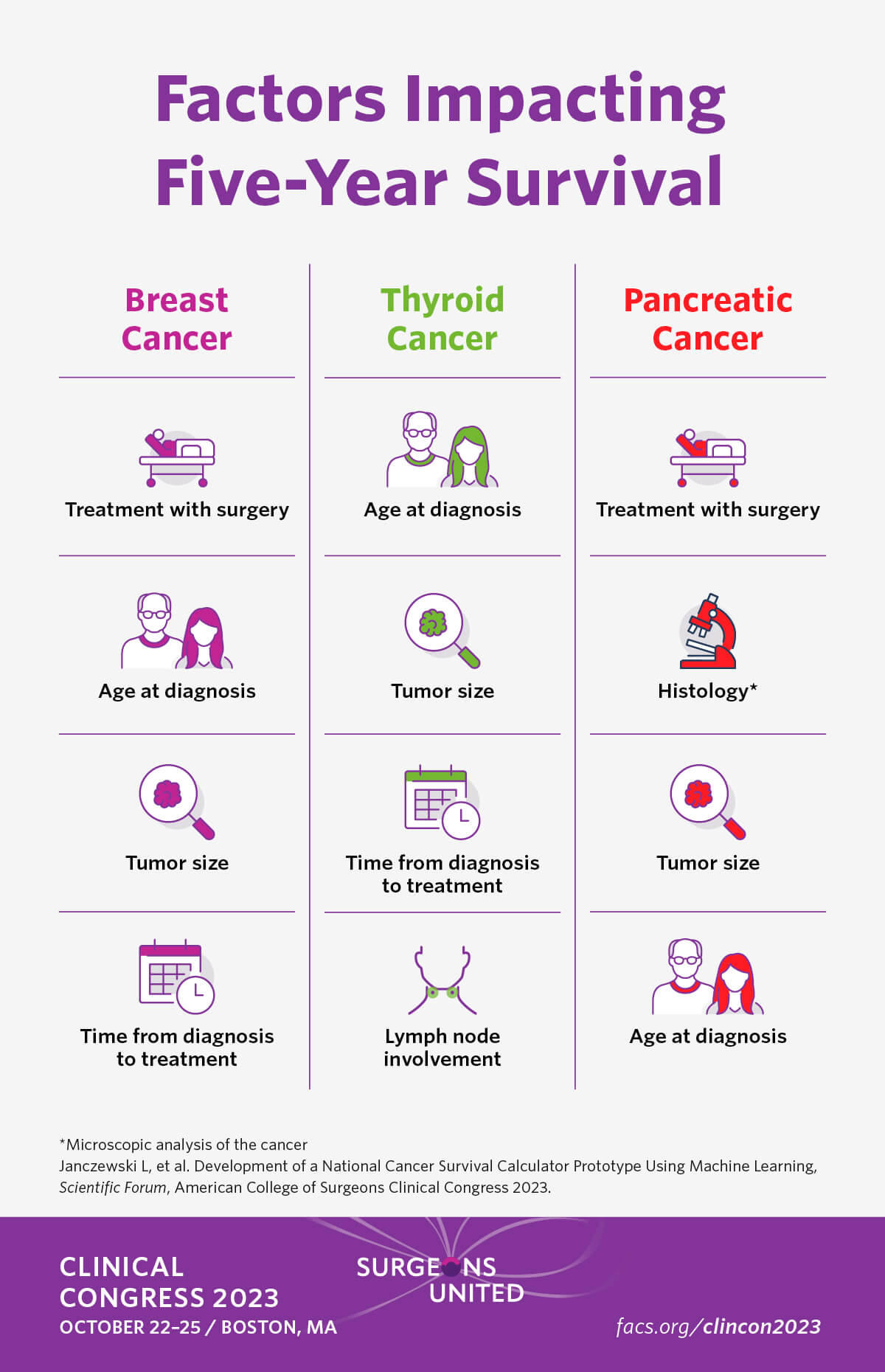CHICAGO — Scientists are developing a cutting-edge cancer survival calculator, harnessing the power of artificial intelligence (AI) to provide highly accurate life expectancy estimates for patients diagnosed with breast, thyroid, and pancreatic cancers.
Historically, survival rate predictions for cancer patients have primarily been based on the disease’s stage.
“There is a multitude of other factors that may influence a patient’s survival beyond just their staging criteria,” says the study’s lead author, Dr. Lauren Janczewski, a clinical scholar with ACS Cancer Programs, in a media release. “We sought to develop this Cancer Survival Calculator to provide a more personalized estimate of what patients can expect regarding their cancer prognosis.”
This revolutionary prototype tool was rigorously tested on a vast nationwide cancer dataset, with the aim of evaluating five-year survival rates.
After collecting data from patients diagnosed with these cancers in 2015 and 2017, the research team leveraged the National Cancer Database (NCDB), an expansive repository containing records of 72 percent of new cancer diagnoses in the U.S. Machine learning algorithms were trained on three-quarters of this data, identifying patterns that link diagnostic characteristics with five-year survival rates. The remaining data was then used to evaluate the prototype’s accuracy.

The expansive study incorporated data from over 250,000 breast cancer patients, 76,624 thyroid cancer patients, and 84,514 pancreatic cancer patients. The research reveals that a myriad of specific attributes tied to patients, tumors, and treatments significantly shaped survival outcomes across all three cancer types.
Highlighting the top influencing factors for each cancer, Dr. Janczewski explains that many of the determinants, such as tumor size, are part of conventional cancer staging. However, the study’s findings underscore that a broader spectrum of factors impacts a patient’s survival beyond just the disease stage.
The researchers highlight the distinctiveness of the Cancer Survival Calculator. It considers specific tumor markers and treatment factors impacting a patient’s outlook, which many present-day tools neglect. Moreover, it’s based on a more exhaustive dataset from the NCDB.
The team envisions the finalized tool to be an invaluable asset for healthcare professionals, ensuring they can offer patients the most informed and accurate prognosis estimates.
The findings are due to be presented at the American College of Surgeons (ACS) annual Clinical Congress in Boston, Massachusetts.
You might also be interested in:
- Breast cancer death rates in women under 40 rising for first time since 1987
- Eating this vegetable regularly significantly lowers risk of death from heart disease, cancer
- Walking pace may predict risk of death in cancer survivors
South West News Service writer Stephen Beech contributed to this report.

